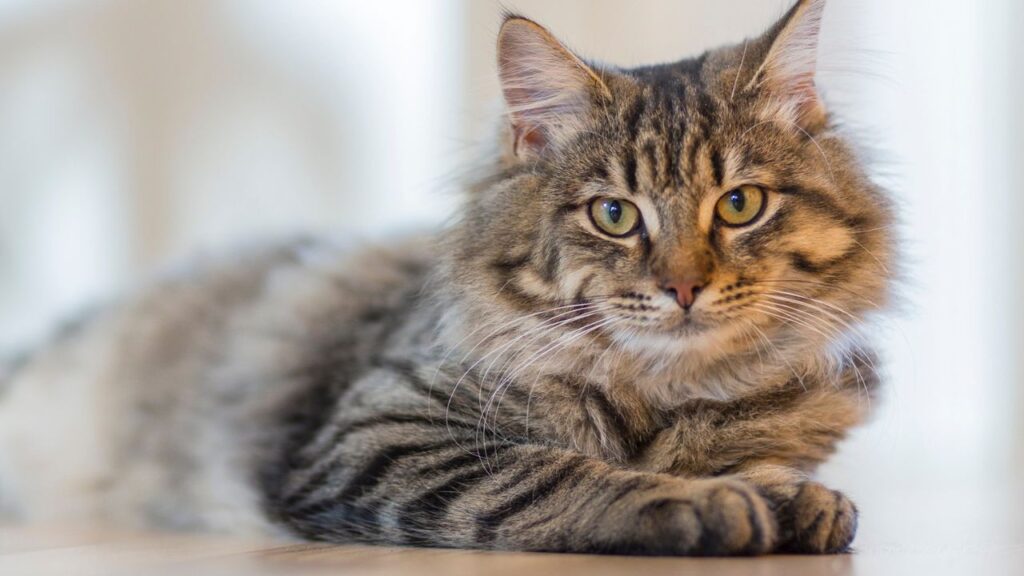Ever noticed how your cat curls up next to you after a stressful day, purring away as if it understands? Or how they do their goofy zoomies just when you need a laugh? Cats aren’t just adorable companions—they can work wonders on your mental health. In fact, the psychological benefits of having cats go far beyond the cliché of “cat therapy.”
Whether you’re a lifelong cat lover or considering adopting one, this article dives deep into how these enigmatic creatures improve our mental well-being. So, grab a coffee, get comfy, and let’s unravel the magic of cats together.
Contents
Why Cats Are More Than Just Pets
Sure, they’re cute and cuddly (well, when they’re in the mood), but cats are also masters of emotional support. Unlike dogs, cats are a little more independent, which makes their affection feel extra special—almost earned. And trust me, there’s science behind how cats enrich our mental health.
1. Stress Relief in a Furball
Ever felt your shoulders relax just by stroking a cat? That’s not your imagination. Petting a cat has been scientifically proven to reduce cortisol, the stress hormone.
- How it works: The rhythmic motion of petting triggers a calming response in your brain, releasing feel-good chemicals like serotonin.
- Pro Tip: Next time you’re overwhelmed, spend a few minutes just gently petting your cat. It’s like meditation, but fluffier.
2. A Natural Antidepressant
Feeling down? Cats have an uncanny ability to lift your spirits. Their quirky behaviors—like chasing invisible enemies or sleeping in the most bizarre positions—can be an instant mood booster.
- Purring Magic: A cat’s purr isn’t just cute; it’s therapeutic. Studies suggest that the frequency of a cat’s purr (between 20–140 Hz) can reduce anxiety and even help with healing.
- Relatable Moment: Remember that time your cat knocked something off the table while making eye contact? You were mad for a second, but then you laughed because, well, cats.
3. Combatting Loneliness
If you’ve ever lived alone, you know how quiet and isolating it can get. Enter: cats. They’re not just pets; they’re companions who fill your home with life.
- Social Connection: Talking to your cat (yes, we all do it) can feel like a genuine interaction. They might not reply in words, but those slow blinks? That’s cat language for “I trust you.”
- For Introverts: If socializing with humans feels like too much, cats are the perfect middle ground. They offer companionship without demanding constant attention.
How Cats Help with Mental Health Disorders
It’s not just about feeling good; cats can have tangible benefits for people with mental health conditions. Let’s look at some specific cases.

1. Anxiety
Cats are incredibly intuitive. They often sense when you’re feeling anxious and will stick close by, offering silent support.
- Grounding Presence: Their steady breathing and soft purring can help ground you during an anxiety attack.
- Mindfulness Aid: Watching a cat groom itself or chase a laser pointer can pull you out of your worried thoughts and into the present moment.
2. Depression
For those battling depression, getting out of bed can feel impossible. Cats can provide the motivation you need.
- Routine and Responsibility: Feeding, grooming, and playing with your cat gives you a sense of purpose.
- Non-Judgmental Love: Cats don’t care if you haven’t showered or cleaned your room—they love you as you are.
3. PTSD
For individuals with PTSD, cats can serve as emotional anchors.
- Predictable Behavior: Cats thrive on routine, which can be comforting for someone whose world feels unpredictable.
- Emotional Support: Their presence can help reduce hypervigilance and create a sense of safety.

Surprising Cat Psychology Hacks
You might think you’re taking care of your cat, but in many ways, they’re taking care of you too. Let’s explore some cat-inspired psychological lessons.
1. The Art of Doing Nothing
Cats are experts at lounging. Watching your cat bask in a sunbeam can remind you that it’s okay to slow down.
- Life Lesson: Sometimes, rest is the most productive thing you can do.
2. Living in the Moment
Cats don’t dwell on the past or worry about the future. They’re all about the here and now.
- Mindfulness Tip: Try mimicking your cat’s focus. Whether it’s watching birds or playing with a toy, immerse yourself fully in the moment.
3. Unapologetic Boundaries
Cats are pros at setting boundaries—whether it’s walking away when they’ve had enough or swatting your hand if you pet them the wrong way.
- Self-Care Lesson: It’s okay to say no and prioritize your comfort.
FAQs About Cats and Mental Health
Q: Do all cats have the same effect on mental health?
A: Not necessarily. Each cat has its own personality. While most cats are great companions, some may be more aloof. It’s important to find a cat that matches your temperament.
Q: Can cats help with children’s mental health too?
A: Absolutely! Cats can teach kids empathy, responsibility, and patience—all while providing comfort and companionship.
Q: Is there any downside to having a cat for mental health?
A: The main downside could be allergies or the initial adjustment period. But with time and care, most challenges are manageable.
A Few Fun Cat Facts to Brighten Your Day
- Cats spend about 70% of their lives sleeping. Talk about knowing how to relax!
- A group of cats is called a clowder, but let’s be honest—one cat is chaotic enough.
- Cats have a unique “vocabulary” of meows they use just for humans. They’re basically multilingual geniuses.
Final Thoughts: Why Cats Are the Ultimate Therapists
In a world that often feels overwhelming, cats offer a little slice of peace. They don’t judge, they don’t rush, and they don’t ask for much (except maybe a cozy spot on your laptop keyboard).
If you’ve ever considered adopting a cat, now’s the time. The psychological benefits of having cats are real, profound, and backed by science—and they come with the added bonus of endless purrs, cuddles, and hilariously weird antics.
So, what are you waiting for? Your furry therapist is out there, waiting to change your life—one slow blink at a time.


Comments are closed.